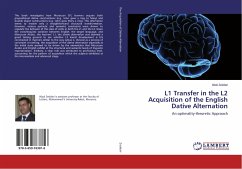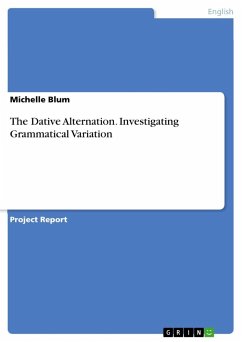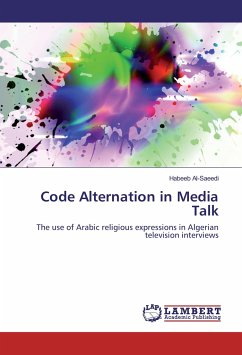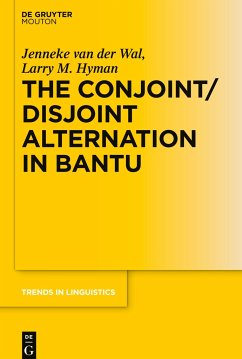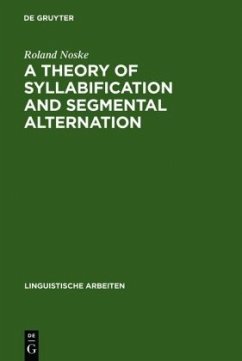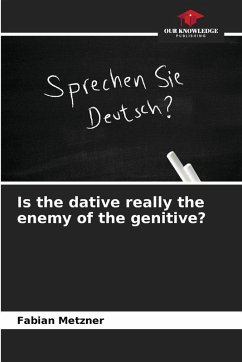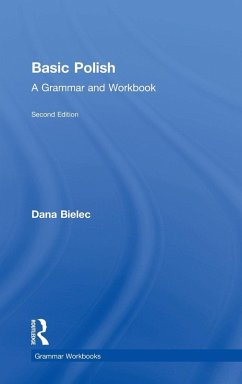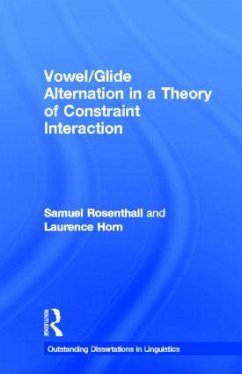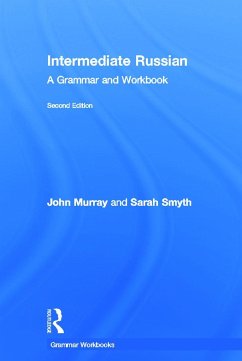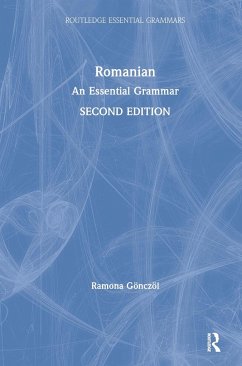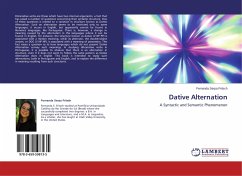
Dative Alternation
A Syntactic and Semantic Phenomenon
Versandkostenfrei!
Versandfertig in 6-10 Tagen
36,99 €
inkl. MwSt.

PAYBACK Punkte
18 °P sammeln!
Ditransitive verbs are those which have two internal arguments, a fact that has raised a number of questions concerning their syntactic structure. One of these questions is related to a variation in structure known as Dative Alternation. Such an alternation seems to be restricted only to some languages; it occurs in English, but apparently cannot be found in Romance languages, like Portuguese. There is, however, a change in meaning caused by the alternation in the languages where it can be found; in English, for instance, the structure known as dative (V NP PP) is associated with a motion mean...
Ditransitive verbs are those which have two internal arguments, a fact that has raised a number of questions concerning their syntactic structure. One of these questions is related to a variation in structure known as Dative Alternation. Such an alternation seems to be restricted only to some languages; it occurs in English, but apparently cannot be found in Romance languages, like Portuguese. There is, however, a change in meaning caused by the alternation in the languages where it can be found; in English, for instance, the structure known as dative (V NP PP) is associated with a motion meaning, while its alternate, the double-object variant, or DOC (V NP NP), is associated with a meaning of possession. This fact raises a question as to how languages which do not present Dative Alternation convey such meanings. In studying ditransitive verbs in Portuguese, it is possible to observe that there is an alternation in structure, even if it does not seem to follow the same pattern asDative Alternation does in English. This book is intended to study such alternations, both in Portuguese and English, and to explain the difference in meaning resulting from such structures.



